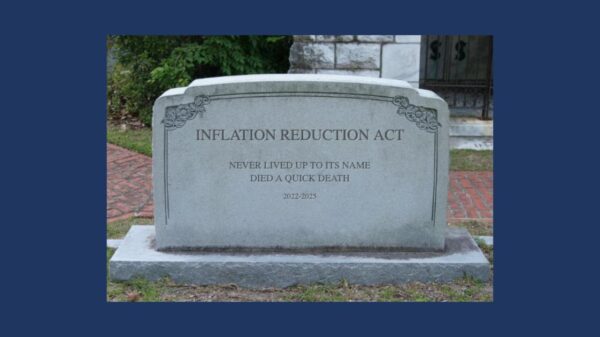Ahead of the G-20 Summit in Rome last week, U.S. Sen. Rick Scott, R-Fla., sent an open letter to the G-20 leaders expressing his opposition to a country-by-country minimum tax rate of 15 percent on multinational enterprises, insisting it represents a significant threat to American competitiveness.
In his letter, Scott reminded global leaders that any changes to tax code or tax treaties must obtain approval by the U.S. Senate.
The letter is below.
Dear G-20 Leader:
On October 8, 2021, 136 countries of the OECD/G20 Inclusive Framework joined the Statement on the Two-Pillar Solution to Address the Tax Challenges Arising from the Digitalisation of the Economy, a revised Two-Pillar agreement in which participating countries will drastically change their taxing rights over multinational enterprises (MNEs) and ensure that MNEs with more than $870 million USD in revenue are subject to an effective minimum tax rate of 15 percent beginning in 2023.
I want to be clear: this Two-Pillar solution represents a significant threat to both current and future American competitiveness, and is not in the best interest of American taxpayers, job creators or families. While there are issues related to global taxation that must be addressed and merit global cooperation, it is also imperative that every country retain sovereignty over its own tax code and tax policies. Global competition drives innovation and allows for the world’s diverse economies to participate in the international marketplace in ways that work for their individual needs and goals. The prospect of ceding tax decision-making to an outside body is not an action I can support.
While U.S. Treasury Secretary Janet Yellen has helped lead negotiations on this agreement and has expressed the U.S. Government’s support for the Two-Pillar solution, it is important to note that neither she nor President Joe Biden have the authority to unilaterally alter the U.S. tax code. The U.S. Congress must pass legislation to change U.S. law. Further, in order to enter into or amend a bilateral or multilateral tax treaty, the Biden administration must receive approval of such a treaty with a two-thirds majority vote of approval in the U.S. Senate.
As a U.S. Senator who represents the interests of families and businesses in Florida, my opposition to the global minimum tax agreement draws deeply from the disastrous consequences it will have here in America. According to the Penn Wharton Budget model, both before and after Congress passed the 2017 Tax Cuts and Jobs Act, MNEs paid an effective U.S. tax rate of around two percent on foreign income. It estimates that if the U.S. were to conform its minimum tax to the Two-Pillar solution, which includes a country-by-country minimum tax of 15 percent, the residual U.S. tax rate on MNE foreign income would rise to 6.1 percent, meaning higher costs for families and consumers everywhere. If American businesses become globally uncompetitive because of the Two-Pillar solution, the result will be fewer jobs, reduced wages for workers, stifled investment and suppressed innovation.
I oppose the OECD/G20 Inclusive Framework and will continue to oppose the Two-Pillar solution as currently written, and will not support its approval by Congress. Further, I will strongly oppose any attempt by President Biden and Secretary Yellen to usurp or circumvent the role of Congress in setting tax policy to advance this agreement.
Thank you for your consideration of this important issue.





















